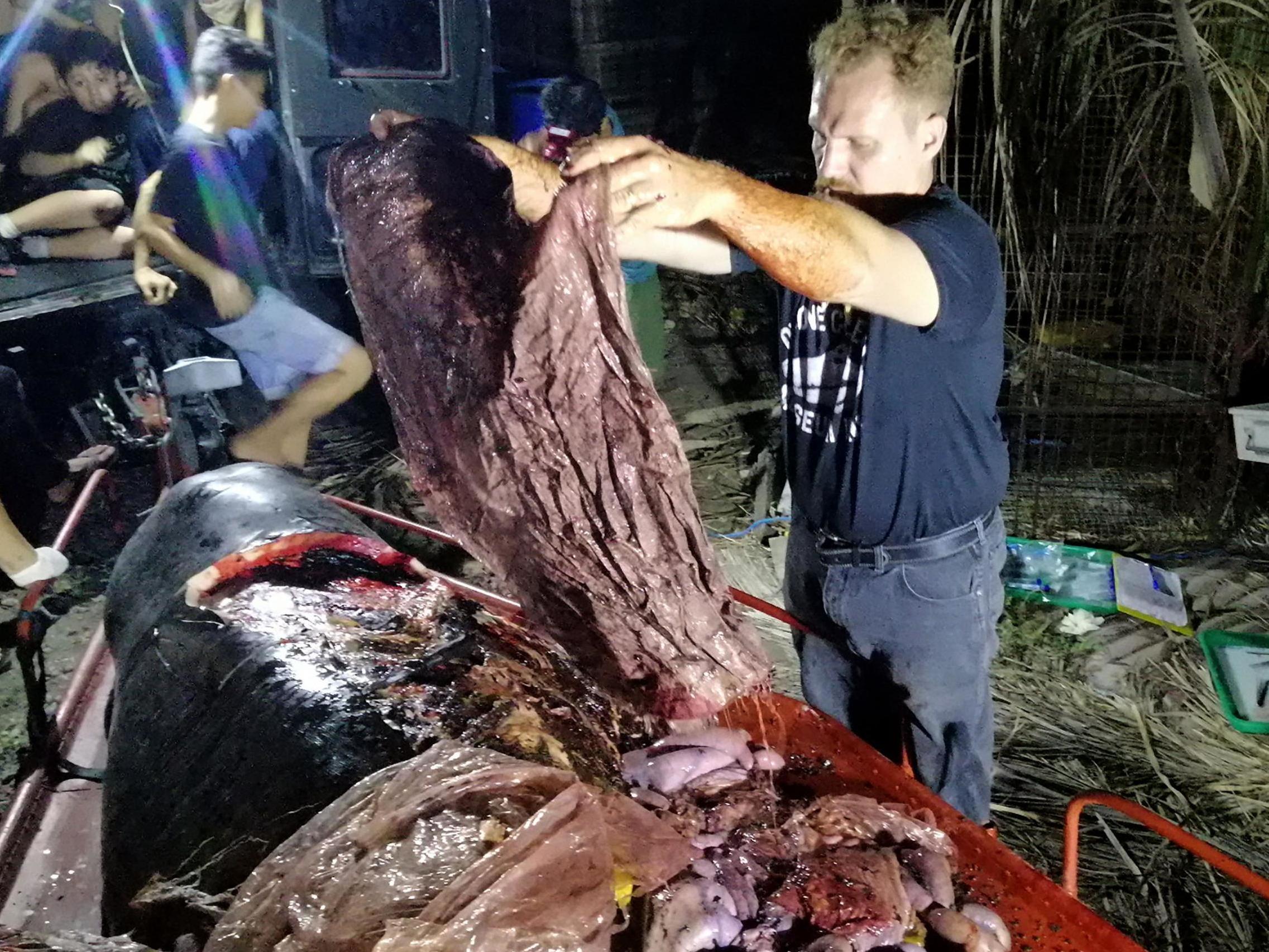Whale that starved to death had record 40kg of plastic waste in its stomach
‘The Philippine people are a proud people – sadly it’s not in being clean or taking care of the environment’

Scientists have found what they believe is a record amount of plastic in the stomach of a whale that died in the Philippines.
The animal was starved and dehydrated, and had been vomiting blood, biologists said.
A post-mortem examination revealed 40kg of plastic waste in its stomach, including “multiple” shopping bags, banana plantation bags and 16 rice sacks.
The findings prompted renewed calls for the Philippines government to take action against people dumping plastic into the sea.
The Philippines are the third-worst polluter of oceans after China and Indonesia, according to Greenpeace.
Together with Vietnam and Thailand, the countries account for up to 60 per cent of the plastic waste that ends up in oceans, experts say.
The Cuvier’s beaked whale, which was 4.7m (15.4ft) long, had died of starvation and dehydration, post-mortem tests confirmed.
Sheets of plastic were lifted out of its stomach.
Experts at the D’Bone Museum in the Philippines have recovered 61 whales and dolphins in 10 years, but said their latest discovery was “the most plastic we have ever seen in a whale”.
Marine biologist Darrell Blatchley said: “Upon reaching the stomach I knew this whale had died due to plastic ingestion.
“I was not prepared for the amount of plastic.
“Forty kilos roughly of rice sacks, grocery bags, banana plantation bags and general plastic bags. Sixteen rice sacks total. It was so bad the plastic was beginning calcification.
“The Philippine people are a proud people – sadly it’s not in being clean or taking care of the environment.
“The Philippines needs to change from the children up or nothing will be left.”
It was so bad the plastic was beginning calcification
The museum posted on social media: “It’s disgusting. Action must be taken by the government against those who continue to treat the waterways and ocean as dumpsters.”
Four months ago a dead sperm whale that washed ashore in Indonesia had nearly 6kg of plastic waste in its stomach, including flip-flops and 115 drinking cups.
And last summer 80 pieces of plastic rubbish, weighing 8kg, were found in the stomach of a whale that died in Thailand.

Join our commenting forum
Join thought-provoking conversations, follow other Independent readers and see their replies
Comments
Bookmark popover
Removed from bookmarks